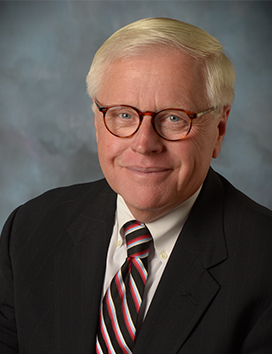The reverse mortgage product category is one designed to offer seniors a solution to financial problems, and since there is no shortage of such problems at the moment in the midst of economic instability and high levels of inflation, this could be a very good time to be involved in the reverse mortgage business.
This is the perspective shared by John Luddy — the SVP of reverse lending at Norcom Mortgage in Avon, Ct. — in a new episode of The RMD Podcast. Because of the way that the reverse mortgage can work for qualifying borrowers, there could be a unique opportunity to solve the problems faced by seniors on a fixed income as happened during the COVID-19 pandemic, Luddy explains.
Why now may be a good time to be in reverse
Luddy is not one to downplay the problems faced by people across the nation or the world, but the core of his belief at the moment stems from the creation of new, unique problems that reverse mortgage professionals may be suited to help their clients solve, he says.

“I think that’s why it’s such a dynamic space to be in,” he says. “Because we’re in the business of solving people’s problems. We offer a lot of solutions, and we’re seeing people with more variety of problems [and with] bigger problems. So, we’re able to help more people with more products, but we also are finding clients that need our help more than ever.”
The reverse mortgage business tends to react to challenging economic conditions differently than other lending businesses, he says, which stands in marked contrast to the challenges being faced in the forward mortgage business.
“You’ve got to remember, we’re looking at the world through the other end of the telescope,” he says. “So as our clients’ needs grow, so does our business. In the forward world, they’re running around with grave concerns about what’s going to happen in the future to the mortgage business, and we’re the opposite.”
Luddy doesn’t want to sound like an “ambulance chaser,” he says, but acknowledging the way the business works and what the reverse mortgage product category can help provide to clients who may need the product is important to acknowledge, he says.
“We’re the opposite of [the forward arena],” he says. “If our clients’ lives were rosy, they wouldn’t need us.”
Needs versus strategy
There are some key differences that Luddy’s company is seeing now compared to the onset of the pandemic. During COVID, more adult children of seniors were seeking out a reverse mortgage as a potential option for their parents to create additional cash flow. With inflation and other economic volatility in the current moment, Luddy is noting more creativity from seniors who are doing their research about reverse mortgages prior to speaking with him or another member of his team.
However, something else that Luddy is noting is that there appears to be increased interest in private-label reverse mortgages (which he consistently calls “portfolio loans”) as opposed to a Home Equity Conversion Mortgage (HECM).
“It’s the perfect storm of extreme needs out there, maybe because of inflation or maybe just because of life circumstances along with higher appraised values,” he says. “So, it gives [seniors] the opportunity. Almost all of our pipeline today here at Norcom has been with the portfolio loans and not the FHA loans, surprisingly.”
Even in spite of higher interest rates, if Luddy or a colleague has had to call a client back to revise the rate higher, the reply is not a hangup or a cancellation: it’s a question, he says.
“When I had to call and tell [a client the rate went up], their only question is, ‘when am I closing?,’” Luddy says. “So, all the business [and] angst that the forward people are going through, all this drama about rates going up […] all of that is not part of our world, our world is [solving] the problems [clients have].”
Not every need is met by a private-label option right now, he says, because there may be a particular need related to a more consistent line of credit growth, for instance. When those situations arise, the HECM is ready to serve as a potential solution, Luddy explains.
“Before you start drilling, you’ve got to make sure that you know what the need is,” he says. “And sometimes, quite frankly, our clients can’t articulate their need because they’re not even fully aware of it. So before you sell the solution, you have to sell them on their need. You have to teach them, almost, what their problem is and then offer the solution. And if it’s an FHA product, that’s great, too.”
Remaining agnostic about which product is best for their needs will be critical, Luddy says. That will ultimately prove where the discussions — and ultimately, the closing — will land.
Listen to the full discussion with John Luddy on the latest episode of The RMD Podcast.





